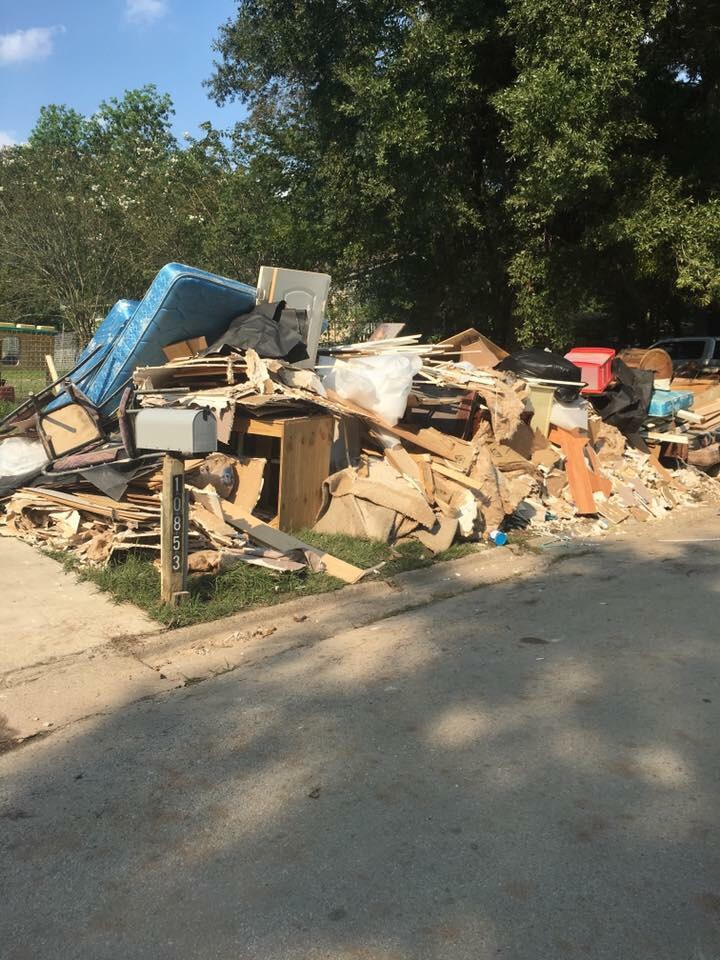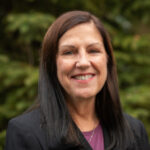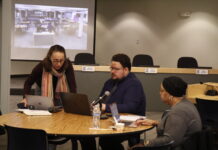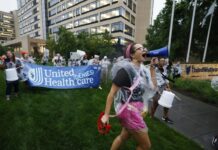
All eyes were on Hurricane Irma over the weekend, but not too long ago, the focus was on Harvey and the devastation in Texas. Anchorage resident Teresa Gray is a medic who was inspired to form a relief organization called Mobile Medics International after she helped Syrian refugees in Lesvos Greece last year.
Gray and one of her teams recently returned from Houston where they found the greatest need was in areas where undocumented immigrants were living.
GRAY: And they will not come out of their neighborhoods or go anywhere or to anybody that even resembles something government. And so these people had had no help at all because they didn’t leave, they didn’t shelter and they’re in the lower lying areas of Texas, so their houses got completely engulfed. Like, nothing is salvageable. They’re terrified to go to shelter, they’re terrified to ask any government organization for any kind of help. They wouldn’t go to a local clinic because they were afraid they were going to ask for documentation.
Because we’re Mobile Medics, we took the medicine to them, and through an interpreter, the first thing we said, we went door to door, and the first thing we would say to them is “no names, no documentation, free medical. We just need to know if you need help. You don’t even have to tell us who you are.” And by doing that, it sort of, one neighborhood told the next neighborhood which told the next neighborhood, and then we were in pretty high demand. So, we actually found a mission we didn’t know that we were going on, and it ended up being a pretty fabulous thing.
TOWNSEND: What parts of Houston were you in? What neighborhood areas of the city, and what were the biggest needs that you found going door to door?
GRAY: We ended up about an hour or so right outside of Houston. There’s kind of a Hispanic neighborhood area, about an hour, I think it was north of Houston. And the biggest thing that we saw is that people lost the ability to monitor themselves. So my diabetics didn’t have their glucometers and the people with high blood pressure didn’t have their blood pressure cuffs, and they have lost their medication. This area, like I said, is kind of low-lying, and the neighborhood sloped towards the water. So, the bottom half of the street, you know, they were, the water came up so quickly that they literally ran up the street to escape the water, and lost everything. And then eventually, the water engulfed everybody’s houses, even higher up the street. So everybody sort of lost their medication, so it was basic medicine. They were afraid their blood pressure was out of control because they lost their medication, they couldn’t monitor it and they were under a lot of stress.
Nobody was eating properly because they didn’t have the food resources that they had before, so my diabetics were getting into trouble. So one of the things that Mobile Medics does and the reason that we we sort of self fund at this point is when people donate to my organization, I take it really, really seriously, that that $20 you handed me does not pay for my plane ticket. What it pays for is a new glucometer for that lady who lost hers.
The donations that I received from this trip, you know, we bought glucometers and we bought people medication and we bought blood pressure cuffs, and we passed out things as needed, so I made sure that the money went directly to people who needed it.
TOWNSEND: You mentioned that you’re going to be deploying people to St. Bart and St. Martin islands. Tell us about when that trip will take place and then are you going to be sending people to Florida?
GRAY: The St. Barts and St. Martin trips are currently in the works. I’m estimating that we’ll probably go in about 10 days, and once again, it will largely depend on the infrastructure that’s going on. And I’m guessing that we’ll start on St. Martin and then maybe island-hop to some of the other islands, because they did get hit with a full Cat 5. And they do not have the building codes or the infrastructure that Florida has.
And as far as Florida is concerned, when we were in Houston, I actually sent a team member to Haiti to kind of assess that situation, to see if the hurricane was going to hit there. Because we were prepared to go from Houston to Haiti, and it missed Haiti, luckily. And then, we thought about flipping over to Florida, which a lot of the NGOs have done, but honestly, as I look at the amount of support that’s pouring into Florida, the American people respond beautifully, honestly, to natural disaster. And they’re really good about supporting themselves. Americans are really good about being able to pick themselves up and it’s these little, tiny, third world countries that sort of get left in the wake. So I honestly think that we’d probably be better served going to those little Caribbean islands, so we probably will not be going to Florida.
Lori Townsend is the chief editor, senior vice president of journalism and senior host for Alaska Public Media. You can send her news tips and program ideas for Talk of Alaska and Alaska Insight at ltownsend@alaskapublic.org or call 907-550-8452. Read more about Lori here.





